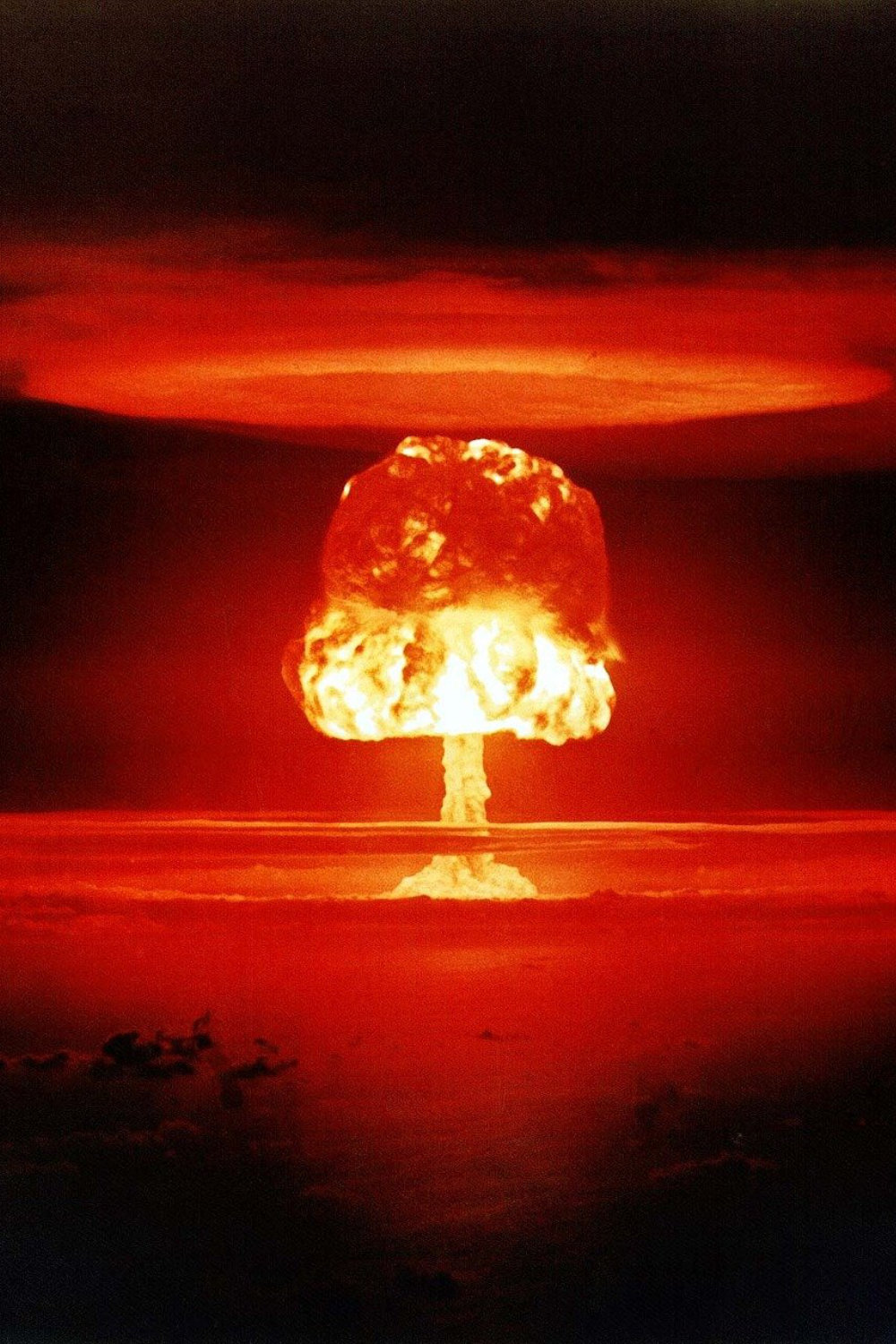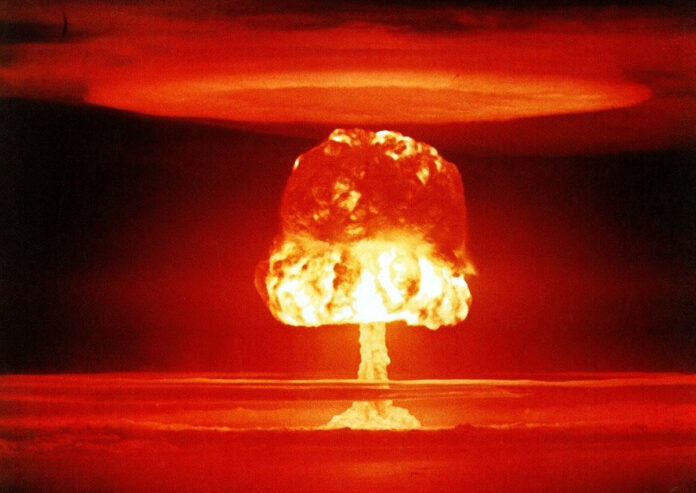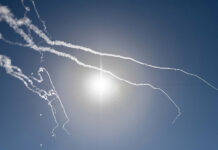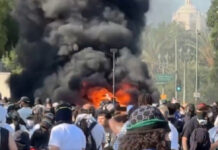Have you ever wondered what to do—or how to prep—to survive a nuclear attack or EMP strike? Here’s a cheat-sheet, a brief list of things you can do to survive if caught in one. Think of this as a quick review to get you started or ideas you can share with someone who isn’t a prepper. If they seem interested or ask more questions, then you can go into greater detail.
If you are new to prepping and stumbled across the page, consider this an introduction, not the full story. Keep in mind that after a nuclear weapon is used, an EMP attack, or an attack on the electrical gird, it will be important to have what we call the Big Three: food, water and shelter. Surviving the event is just step one. The hard part is surviving the aftermath, which could last weeks, months, or even years.
How to Survive a Nuclear Bomb
The closer you are to a nuclear blast, the more likely you are to die, but the opposite is also true: the further away you are, the more likely you are to live. Therefore, the best way to survive a nuclear attack is to be as far from the location where a nuclear weapon is set off as possible. Hundreds of miles is good; thousands is even better.
You can minimize your chance of being near a nuke strike by not living near a potential target area, such as a missile base, military base, critical infrastructure, or a large commercial port. Large cities might also be targets, especially Washington and New York.
If you are close to a nuclear blast, don’t look at the bright light. Immediately get underground, if possible, before any shockwave reaches you. A shockwave travels about a mile in five seconds, so if you are five to ten miles away from the target, you might have 30 or 40 seconds before the blast wave arrives. Use this time to head down a couple flights of stairs and find a corner in which to shelter. Good underground locations include a subway tunnel, underground parking garage, basements or sub-basements. If there are no underground locations, put a concrete or masonry wall between you and the blast. Sheltering inside a large building is better than nothing, but avoid rooms with windows because the glass can get blown out and cause significant damage.
Once the effects of the blast are over, head deeper underground to protect yourself from fallout and radiation. If you are not underground, move away from the blast as quickly as possible to avoid continual radiation exposure.
For details on how to survive radiation, read Protecting Yourself from Fallout.
How to Survive an EMP
The good news is that an EMP strike is unlikely to result in your immediate death, as long as you are not in an airplane or other vehicle that suddenly stops working and crashes because of the EMP. The danger comes afterwards. (See How to Survive a Grid-Down Event, below.)
The wave of electromagnetic energy from an EMP travels at the speed of light, so it is too late to protect yourself or your devices when it hits. You have to have previously outfitted your home and car with EMP surge protectors. However, if you think there is the possibility of an EMP attack in the next 24 hours, your best bet is to:
- Turn off all the circuit breakers in your breaker box, including the main. Yes, this will mean you will have no power.
- Consider removing your electric meter, but keep in mind doing so without proper training may be dangerous and/or illegal. (Check local laws or regulations.)
- Turn off and unplug all your electrical devices. If devices have removable cords, remove the cords and store them at least a few feet away.
- If you have a generator, make sure no extension cords are plugged into it.
- Remove lightbulbs from their sockets.
- Store electronic devices in a Faraday cage. You can make a basic Faraday cage out of a metal garbage can or ammo can. Instructions and how-to videos can be found online.
Once an EMP has been used, don’t assume the danger is over. There could be follow-up attacks. Use your judgement regarding when you can plug in and turn things back on. It might be best to start slowly with only a few devices.
Depending on the EMP device used and the distance from you, some electronic items may still work. For example, some tests have shown that cars that stall when hit by an EMP will often restart. There are many variables.
How to Survive a Grid-Down Event
After an EMP, the grid will likely be out. That is also likely after a nuclear strike.
During a grid-down event—whether caused by an EMP, a hack attack, war, or a natural disaster—not only will there be no electricity, but communications will be limited. Other services will deteriorate and degrade and likely disappear within 24 to 72 hours, including cell phones, the Internet, ATMs, and 911/police, EMS and fire. In a longer outage, these will be followed by outages of water, sewer, and natural gas services that rely on pumps. On a local level, elevators will stop running, trapping some people; retailers will close because they cannot accept credit or debit cards. We will be catapulted back to the technology of the 1880s, but without the skills our forefathers had.
Most of the dangers associated with a broad power outage will not start for 24 hours or more, so your best bet to survive a massive power outage is to either 1) go home and bug in, or 2) bug out to a safer location as fast as possible. If you choose option two, you will want to leave quickly, before panic sets in.
The longer the event lasts and/or the larger a section of country it covers, the more dangerous it will be. The biggest danger will be from other humans, and that danger grows with time. Some people will be hungry, some will be angry, and some will look at the outage as an excuse to run wild, knowing that you can’t call 911 and the security cameras will be down for the count. After the danger from other humans will be a lack of water, exposure to the elements, food shortages, medical emergencies, and arson or accidental fires.
If you bug in, keep a low profile and be prepared to defend yourself and your property. If you are bugging out, head somewhere safer with lower population density.
The Big Three
If you have been prepping for a while, you probably have your basics covered. That’s good, because they will help you survive during the disruption following an attack. If you are new to prepping or still have a way to go on your prepper journey, here are some useful links:








